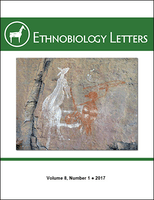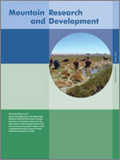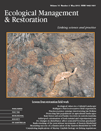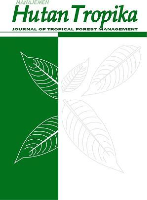
Ethnobiology Letters
metrics 2024
Cultivating Understanding of Ethnobiological Relationships
Introduction
Ethnobiology Letters is a pioneering journal in the field of ethnobiology, dedicated to the scientific study and documentation of the intricate relationships between human cultures and biological diversity. Published by the Société d'Éthnobiologie, this open-access journal has been providing an invaluable platform for researchers and scholars since its inception in 2010. Operating under the ISSN 2159-8126, it aims to promote accessibility and dissemination of knowledge across global communities by making its content freely available. Its contributions have garnered recognition in the realms of anthropology and agricultural sciences, achieving notable ranks in Scopus with a percentile standing in the 56th for Social Sciences and 41st for Agricultural and Biological Sciences. By fostering interdisciplinary dialogue and sharing innovative research, Ethnobiology Letters serves as a crucial resource for academics, practitioners, and students engaged in the exploration of the cultural dimensions of biodiversity.
Metrics 2024
 -
- 0.70
0.70 0.90
0.90 -
-Metrics History
Rank 2024
Scopus
IF (Web Of Science)
JCI (Web Of Science)
Quartile History
Similar Journals

GENETIC RESOURCES AND CROP EVOLUTION
Bridging Genetics and Ecology for Enhanced Crop ResilienceGENETIC RESOURCES AND CROP EVOLUTION is a leading academic journal dedicated to the exploration and advancement of genetic resources in agriculture, evolutionary biology, and plant science. Published by Springer in the Netherlands since 1992, this journal aims to foster a greater understanding of the genetic basis of crop evolution and diversity. With a robust impact reflected in its Q2 status in multiple categories, including Agronomy, Ecology, and Plant Science, it ranks impressively within the top quartiles of its fields. As of 2023, it continues to be an essential resource for researchers, professionals, and students who seek to enhance sustainable crop production and biodiversity conservation through innovative genetic methodologies. The journal promotes high-quality, peer-reviewed research that contributes valuable insights into the genetic adaptation of crops in response to environmental changes. While the journal is not open access, its esteemed reputation ensures that the insights it provides reach a wide audience eager to address some of today's most pressing agricultural challenges.

Ethnobiology and Conservation
Bridging Cultures and ConservationEthnobiology and Conservation is a pivotal academic journal published by UNIV ESTADUAL PARAIBA, EDITORA-EDUEP, dedicated to advancing the fields of ethnobiology, anthropology, ecology, and conservation science. With an ISSN of 2238-4782 and consistent publication since its inception in 2012, this journal has established itself within the academic community, achieving Q2 rankings across multiple categories including Animal Science, Anthropology, and Plant Science as of 2023. Its diverse scope seeks to bridge the gap between traditional ecological knowledge and contemporary scientific practices, making it an essential resource for researchers, professionals, and students engaged in these interdisciplinary studies. The journal's impact is underscored by its competitive Scopus rankings, including a notable percentile ranking in key scientific disciplines. By committing to open access dissemination of knowledge, Ethnobiology and Conservation plays an integral role in fostering global collaboration and understanding of biodiversity and cultural practices. Researchers and practitioners are encouraged to contribute to this vibrant academic dialogue that champions sustainable practices and the conservation of ethnobiological resources.

MOUNTAIN RESEARCH AND DEVELOPMENT
Connecting research and development in mountainous regions.MOUNTAIN RESEARCH AND DEVELOPMENT is a premier open-access journal dedicated to advancing the understanding of mountain environments and communities through rigorous research and interdisciplinary collaboration. Published by the International Mountain Society since 1981, this journal serves as a vital resource for researchers, professionals, and students in the fields of development, environmental science, and environmental chemistry. With a commendable impact factor reflected in its Q2 and Q3 quartile rankings in 2023 across various categories, it offers a platform for innovative studies that address the unique challenges facing mountainous regions globally. As a vital conduit for knowledge exchange, MOUNTAIN RESEARCH AND DEVELOPMENT fosters the dissemination of research findings, insights, and practical applications aimed at enhancing the sustainability and resilience of mountain ecosystems. Its open-access model, implemented since 2009, ensures that research is accessible to a broad audience, contributing to the ongoing dialogue in mountain studies and related fields. For detailed inquiries, the journal is hosted at the University of Bern, Switzerland.

Ecological Questions
Bridging Theory and Practice in Ecological Studies.Ecological Questions is a distinguished academic journal published by WYDAWNICTWO UNIWERSYTETU MIKOLAJA KOPERNIKA, dedicated to the diverse and evolving field of ecology. With ISSN 1644-7298 and E-ISSN 2083-5469, this journal promotes the dissemination of high-quality research and innovative methodologies in ecological modeling, evolutionary studies, and geographical planning. Its ongoing publication, active from 2002 to 2024, reflects its commitment to fostering interdisciplinary dialogue among ecologists and related scientists. Currently categorized in Q3 across several fields, including Ecology and Ecological Modeling, Ecological Questions serves as a vital resource for both emerging and established researchers, providing insight into current environmental challenges and theoretical advancements. Access to this journal enhances the knowledge base within academia, equipping professionals and students alike with essential information to advance their work and studies in ecology.

ECOLOGICAL MANAGEMENT & RESTORATION
Advancing ecological solutions for a sustainable tomorrow.Ecological Management & Restoration is a premier international journal published by Wiley, dedicated to advancing the fields of ecology, environmental management, conservation, and restoration practices. With an impact factor that positions it in the Q2 category across various ecological and management domains, this journal serves as a critical platform for researchers and professionals seeking to address contemporary issues related to ecosystem health, biodiversity, and sustainable management. Covering a wide range of topics from ecological restoration techniques to policy impacts on nature conservation, the journal caters to a diverse audience and contributes to the scientific community's understanding of environmental challenges. Importantly, the journal provides significant visibility, ranking in the top percentiles within key ecological research arenas such as Nature and Landscape Conservation, reinforcing its value for researchers aiming to influence both scientific thought and practical applications in ecology and management. The journal's commitment to disseminating high-quality research makes it an essential resource for students, researchers, and practitioners dedicated to fostering a sustainable future.

PACIFIC CONSERVATION BIOLOGY
Empowering conservation through rigorous research and collaboration.PACIFIC CONSERVATION BIOLOGY is an esteemed academic journal published by CSIRO PUBLISHING, dedicated to advancing research in the fields of ecology and nature conservation. With a strong focus on the unique challenges and biodiversity of the Pacific region, this journal serves as a crucial platform for researchers, conservationists, and students alike to disseminate high-quality, impactful findings. Operating from Australia, it has become a significant resource since its inception in 1993, navigating through nearly three decades of vital scholarly communication. Ranked in the Q2 category for both Ecology and Nature and Landscape Conservation as of 2023, PACIFIC CONSERVATION BIOLOGY maintains rigorous standards, as reflected in its successful Scopus rankings. The journal plays a pivotal role in addressing pressing ecological issues and fostering innovative conservation strategies, making it an essential reference for anyone involved in environmental science. Access options for the journal facilitate widespread distribution of knowledge, supporting the mission to promote informed decision-making in conservation practices.

Journal of Ethnobiology and Ethnomedicine
Bridging Science and Tradition for a Sustainable FutureJournal of Ethnobiology and Ethnomedicine, published by BMC in the United Kingdom, is a premier open-access journal that has been at the forefront of interdisciplinary scholarship since its inception in 2005. With its focus on the intricate relationships between humans and their biological environments, the journal serves as a vital resource for researchers, professionals, and students alike. It boasts a remarkable impact, reflected in its status as a Q1 journal in prominent categories such as Agricultural and Biological Sciences, Complementary and Alternative Medicine, and Cultural Studies. The journal is indexed in Scopus, where it ranks impressively high, including a top 1% position in Cultural Studies and a notable 90th percentile ranking in Complementary and Alternative Medicine. By providing open access to insightful articles that bridge empirical research and cultural knowledge, the Journal of Ethnobiology and Ethnomedicine plays a crucial role in advancing the discourse surrounding traditional practices and their implications for health and sustainability. Join us in exploring this fascinating domain where science meets cultural wisdom.

NORTHWEST SCIENCE
Illuminating the path of scientific discovery in ecology and evolution.NORTHWEST SCIENCE, published by the NORTHWEST SCIENTIFIC ASSOCIATION, serves as a vital resource for researchers and professionals in the fields of ecology, evolution, and systematics. With an ISSN of 0029-344X and an E-ISSN of 2161-9859, this journal has been disseminating valuable scientific insights since its inception in 1975 and continues to do so into 2024. Although currently positioned in the Q4 quartile for its category, it plays a crucial role in advancing the understanding of ecological and biological sciences, reflecting a diverse range of studies and methodologies. Researchers will find the journal particularly appealing due to its emphasis on regional studies and their implications on a global scale. While NORTHWEST SCIENCE is not an open-access publication, it provides significant contributions to the academic dialogue within its discipline, making it an essential addition to the library of any dedicated researcher, student, or professional in the environmental sciences.

Mundo Amazonico
Fostering Global Collaboration in Amazonian ResearchMundo Amazonico is a distinguished academic journal published by the Universidad Nacional de Colombia, Sede Amazonia, dedicated to advancing knowledge in the fields of Amazonian studies, ecology, and biodiversity. Since its inception in 2010 as an Open Access publication, it has provided an invaluable platform for researchers, professionals, and students to share interdisciplinary research related to the unique ecosystems and cultures of the Amazon region. With an ISSN of 2145-5082, this journal not only promotes the importance of sustainable development and conservation efforts but also highlights the rich cultural heritage of Amazonian communities. Authors and readers benefit from its accessible content, thus fostering global collaboration and knowledge sharing vital for the protection of one of the world's most critical eco-regions. The journal is committed to rigorous peer review and aims to set the standard for future research in Amazonian studies.

Jurnal Manajemen Hutan Tropika
Championing the future of tropical forest management.Jurnal Manajemen Hutan Tropika, with ISSN 2087-0469 and E-ISSN 2089-2063, is an esteemed academic journal published by the Bogor Agricultural University, Faculty of Forestry in Indonesia. Since its inception in 1999 as an Open Access journal, it has been dedicated to advancing knowledge in the fields of ecology, forestry, and related environmental sciences. Aiming to provide a robust platform for disseminating research, it has achieved notable rankings within Scopus, including a Q3 classification in Ecology and Ecology Evolution, as well as a Q2 ranking in Forestry for 2023. The journal's commitment to open access ensures that vital research findings are readily available to researchers, professionals, and students alike, fostering collaboration and innovation in tropical forest management. Located at KAMPUS IPB DARMAGA, BOGOR, JAWA BARAT, this journal continues to be a significant resource for enhancing sustainable forest practices and contributing to ecological understanding in the region and beyond.